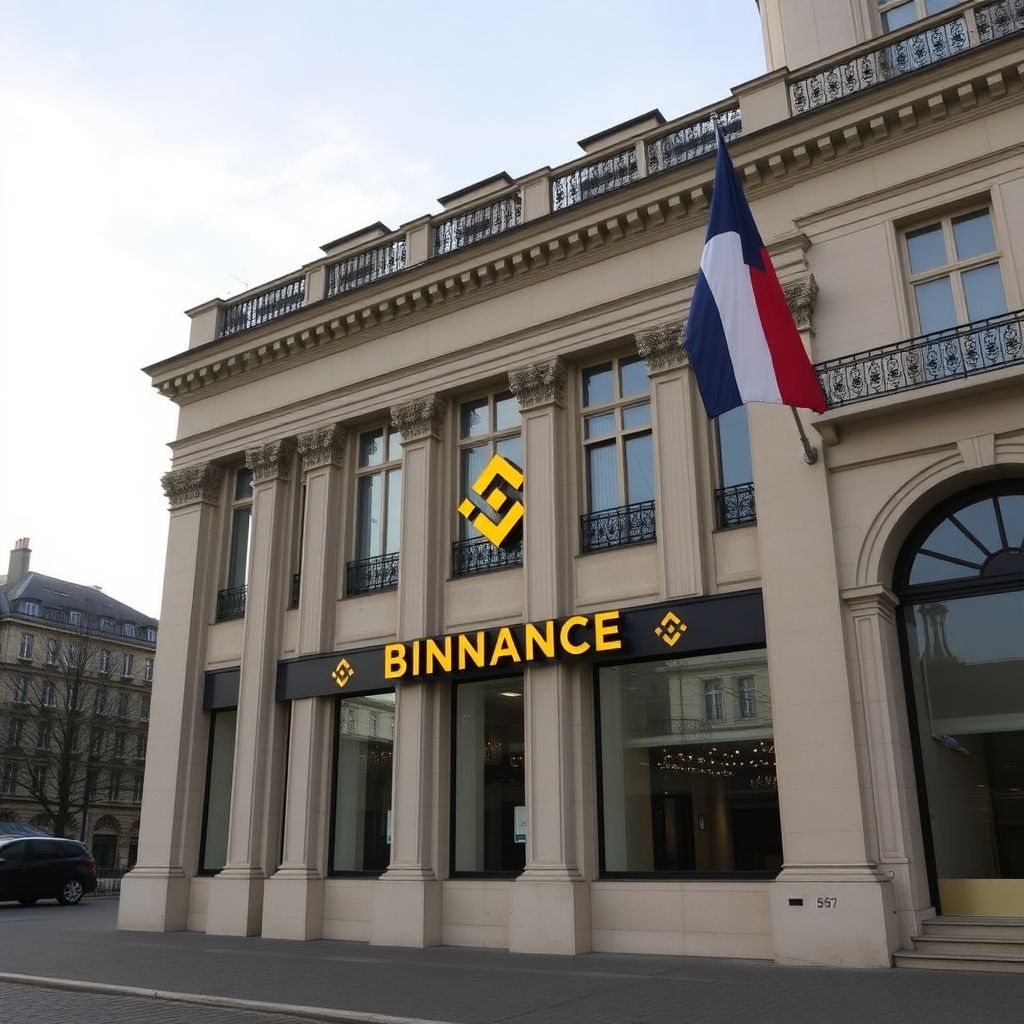France Calls on Binance to Bolster Compliance Measures Amid EU Regulatory Shifts
French regulatory authorities have pressed global crypto exchange Binance to reinforce its risk management and compliance protocols following a series of on-site inspections. The demand comes as France and other European nations push for a more centralized and stringent regulatory framework for digital asset platforms operating across the European Union.
Inspections led by the French Prudential Supervision and Resolution Authority (ACPR) have been ongoing since late last year, targeting Binance and a number of other crypto service providers. These evaluations aim to determine which platforms are fit to receive licenses valid across the EU under the region’s upcoming Markets in Crypto-Assets (MiCA) regulatory framework. The checks focus in particular on the implementation of anti-money laundering (AML) and counter-terrorism financing (CTF) measures, which are now considered essential prerequisites for operating within the European digital asset market.
Binance, along with other firms like Coinhouse, is currently under review by ACPR officials. While Coinhouse and the regulatory body have chosen not to comment publicly, Binance has acknowledged the inspections, characterizing them as a routine part of oversight for entities that are registered and regulated.
The scrutiny reflects the growing efforts among European regulators to bring the cryptocurrency sector in line with traditional financial standards. France, along with Austria and Italy, has recently urged the European Securities and Markets Authority (ESMA) to take charge of supervising major crypto platforms across the EU. This push for centralized oversight is intended to streamline regulatory practices and eliminate inconsistencies between member states.
Binance’s compliance record has long been a point of contention. Regulators in multiple jurisdictions have previously accused the exchange of inadequate identity verification procedures, which could potentially expose the platform to misuse for illicit activities such as money laundering or terrorism financing. Its Know Your Customer (KYC) and AML policies have come under fire for allowing users to transact without sufficient vetting.
In Australia, these concerns led to direct action. In August of last year, the Australian financial regulator flagged Binance for shortcomings in its AML and CTF controls. The platform was criticized for an over-reliance on independent reviews, a lack of local leadership, and high employee turnover. As a result, the exchange was given 28 days to nominate external auditors and was ordered to implement stronger internal controls, including enhanced customer verification and transaction monitoring.
The United States has also taken a hard stance. In 2023, the Commodity Futures Trading Commission (CFTC) and the Department of Justice filed lawsuits against Binance, accusing the company of violating AML laws and operating an unregistered trading platform. These legal actions culminated in a historic $4.3 billion settlement. The case also led to the resignation and eventual imprisonment of Binance’s founder, Changpeng Zhao, widely known as CZ.
Despite these challenges, Binance has continued to expand its global operations. After exiting several Asian markets in 2021 due to tighter local regulations, the company reestablished its presence in the region by acquiring South Korean exchange Gopax. The exchange also managed to maintain operations in Singapore without a local license by employing remote staff based outside the country.
The current regulatory push in Europe represents a pivotal moment for Binance and the broader crypto industry. With MiCA expected to come into full effect in the near future, digital asset service providers will need to meet uniform compliance standards to offer services across all EU member states. This includes implementing rigorous AML protocols, robust KYC procedures, and transparent operational structures.
Strengthened oversight is not only about enforcement but also about building investor confidence. The crypto market has long struggled with reputational issues stemming from high-profile scams, exchange collapses, and regulatory arbitrage. By aligning with traditional financial compliance standards, platforms like Binance can contribute to a safer, more stable environment for crypto adoption.
For Binance, the stakes are high. As the world’s largest crypto exchange by trading volume, its ability to secure a pan-European license could significantly enhance its legitimacy and access to new markets. However, failure to meet the EU’s evolving expectations may result in operational restrictions or even bans in key jurisdictions.
As the crypto sector matures, governments and financial watchdogs around the world are converging on a common theme: regulation is no longer optional. From the EU’s cross-border licensing ambitions to the U.S. crackdown and Asia’s tightening oversight, the message is clear—compliance is the price of entry into the global financial system.
Looking ahead, Binance and other major platforms will likely need to invest heavily in compliance infrastructure, including hiring seasoned professionals, deploying advanced monitoring technologies, and integrating tighter internal controls. Partnerships with third-party auditors and regulators may also become standard practice, as transparency and accountability become non-negotiable.
Moreover, regulators are expected to introduce real-time compliance monitoring tools, giving them the ability to track suspicious activity proactively rather than reactively. This shift could redefine how exchanges approach compliance, moving from reactive fixes to preemptive safeguards.
At the same time, user expectations are evolving. As more institutional investors and traditional financial players enter the crypto space, they demand platforms that meet the same standards as banks and brokerage firms. For Binance to remain competitive in this changing landscape, aligning with global best practices will be crucial.
In conclusion, France’s call for Binance to enhance its compliance is emblematic of a broader transformation underway. The crypto industry’s future will be shaped not only by innovation but also by its ability to build trust through responsible governance. Whether Binance can rise to meet this challenge will determine its role in the next chapter of global finance.
